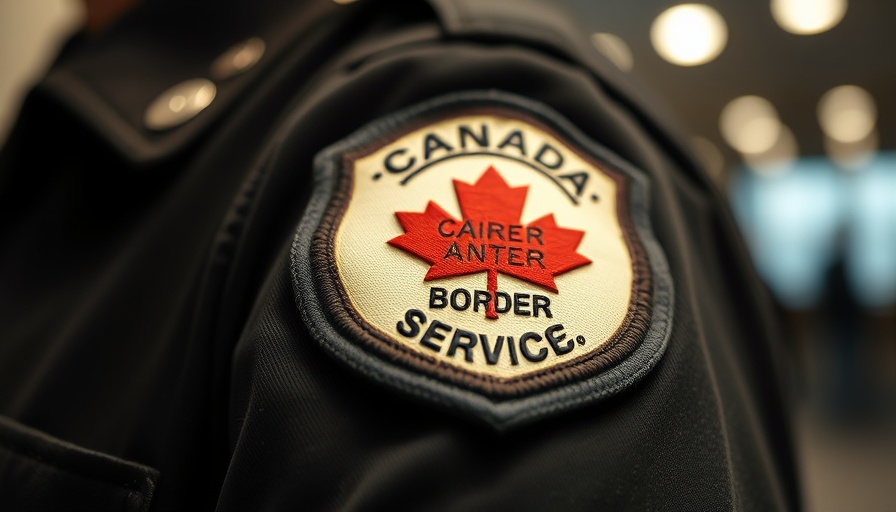
Deportation Orders Target Iranian Officials in Canada
On June 25, 2025, the Canada Border Services Agency (CBSA) announced that three senior officials of the Iranian regime have been issued deportation orders due to their involvement with terrorism and human rights violations. This decision follows a 2022 declaration by the Canadian government that labeled Iran's leaders as inadmissible. The announcement underscores Canada's proactive stance in addressing concerns about the Iranian regime's activities both internationally and within its borders.
The Context of Iran's Designation
The Iranian regime has long been criticized for its support of terrorism and its record on human rights. In recent years, escalating tensions between Israel and Iran have drawn significant attention to the activities of Iranian officials abroad, particularly in Western countries. Canada’s designation of these officials as inadmissible aims to prevent them from entering the country and to ensure the safety of Canadian citizens.
CBSA's Role in National Security
Rebecca Purdy, a spokesperson for the CBSA, highlighted that the agency collaborates closely with national and international partners in matters of border and national security. This cooperation is vital in identifying and addressing threats posed by foreign officials who may seek refuge in Canada. As these deportations unfold, they reflect a broader commitment by the Canadian government to uphold its values of democracy and human rights.
Future Predictions: The Ripple Effect of Sanctions
The deportation of Iranian officials is anticipated to have ripple effects. By actively removing individuals associated with oppressive regimes, Canada signals its commitment to protecting the rights and interests of its citizens. Analysts warn that this action might provoke retaliation from Iran, an aspect that Canadian diplomats must prepare for. A continuum of sanctions and diplomatic measures will likely accompany these deportations to reinforce Canada's stance against the Iranian government.
Common Misconceptions About Immigration Enforcement
Many people believe that immigration enforcement focuses solely on individuals who commit criminal acts within their host countries. However, the CBSA's actions demonstrate that national security concerns extend beyond criminal behavior. The agency's work to deport individuals based on their affiliations with repressive regimes illustrates the complexities of immigration enforcement intersecting with international diplomacy and security interests.
Local Reactions and the Broader Impact
Community reactions to the deportation orders have varied, with some expressing support for the government’s decision as a necessary step to uphold national integrity. Others, however, caution against broad strokes targeting individuals based solely on their national origins, emphasizing the need for context and careful consideration. This debate reflects larger societal questions about immigration, safety, and the balance between security and human rights.
Challenging the Status Quo
The issue of deportation and the broader implications of sanctioning foreign officials raise questions about how nations navigate complex international relations. Canada's approach could influence similar actions by other countries, especially those facing challenges from authoritarian regimes. As Canada forges this path, the global community will be watching closely, perhaps inspiring a shift in how nations coordinate to deal with foreign threats.
Conclusion: Canada’s Position on Global Terrorism
The recent deportations serve as a potent reminder of Canada's commitment to combating terrorism and upholding human rights. As the nation continues to address the implications of its foreign policies, actions like these not only protect its residents but also reaffirm its standing on the global stage as a champion for justice and democracy.
 Add Row
Add Row  Add
Add 




 Add Row
Add Row  Add
Add 

Write A Comment